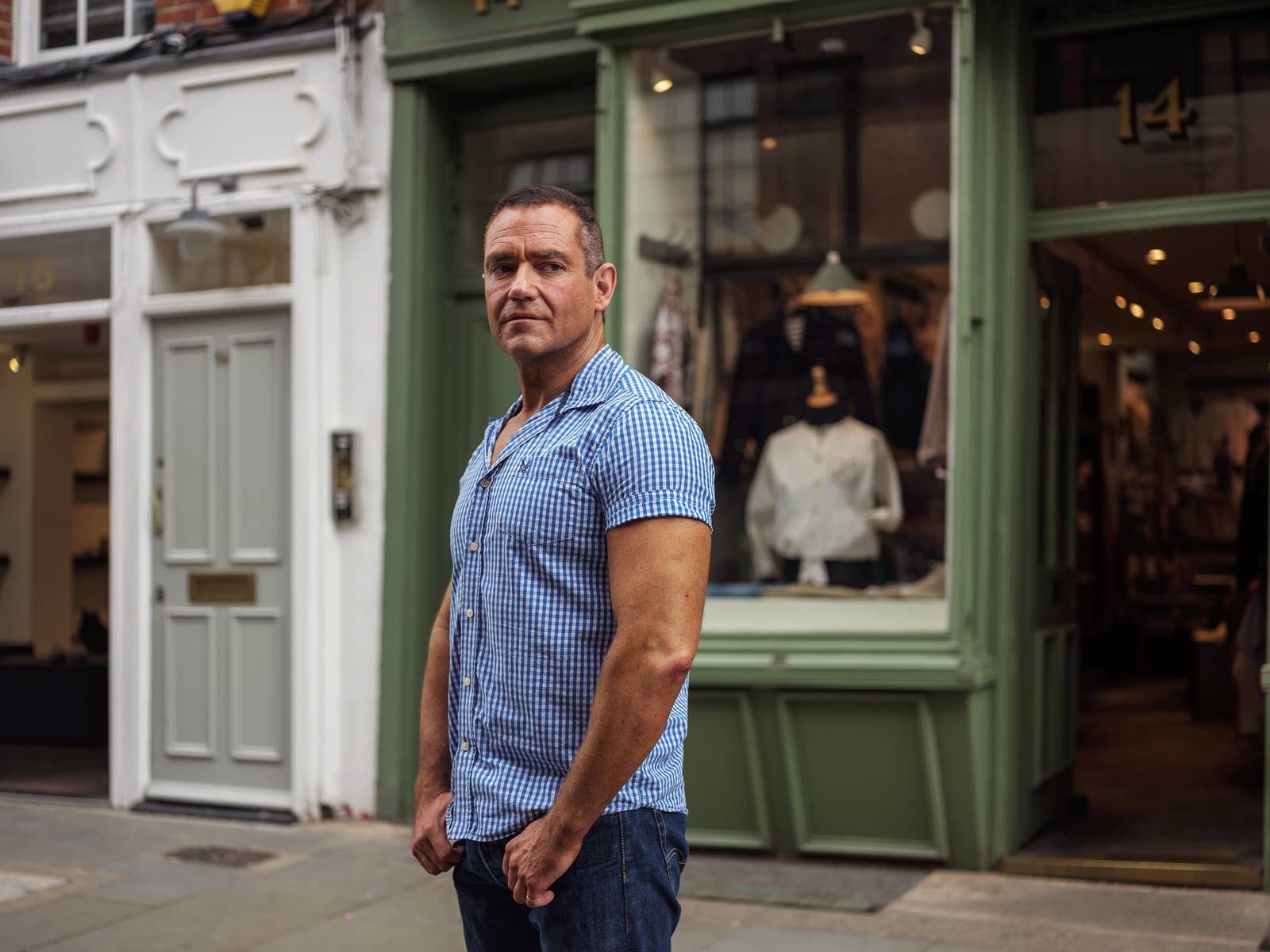
Grindr repeatedly banned a specialist health adviser from its platform for providing information to its users who were seeking help for drug problems — while dealers continued to sell chemsex drugs through the app, BuzzFeed News can reveal.
Ignacio Labayen de Inza, an expert in chemsex substance abuse, was removed by Grindr multiple times without explanation after he set up a profile signposting people to where they could access advice. While doing so, he also catalogued dozens of drug dealers openly selling crystal methamphetamine and GHB/GBL (“G”) on the platform, the very drugs prompting users to seek help.
Following months of conversations with dealers and users through the hook-up app — all conducted on a voluntary basis — Labayen de Inza handed over a cache of evidence detailing wide-scale and explicit drug dealing on Grindr to executives at the company.
He also provided documents capturing more than 2,600 requests for advice from gay and bisexual men who approached him worried about their drug use. Both sets of files were designed to illustrate the need for delivering harm-reduction efforts through the app and included proposals about how best to offer that.
But after the multinational company initially engaged with Labayen de Inza, promising to act and even acknowledging the drug dealing being committed, Grindr executives told him to report drug dealers himself — and then stopped responding. Despite eventually reinstating his profile after more than four months of appeals, the company also refused to explain why they had been blocking him, beyond an apparent, unspecified breach of “community guidelines”.
When approached by BuzzFeed News, a spokesperson for Grindr did not deny that people were dealing drugs on the app but said the company was trying to manage it by blocking accounts and enabling fellow users to report suspicious behaviour.
This, according to Labayen de Inza, is not working. Once blocked, dealers can simply open a new account using a new email address, he said. As such, the attempts to stop dealers are for him comparable to that of Twitter and Facebook in their containment of online hatred and abuse: risible.
The entirety of his evidence, compiled between January and June this year, can today be revealed by BuzzFeed News.
It exposes a major drug market operating with near impunity through the world’s largest gay hookup platform. It also reveals the devastation such sales are causing those who buy the drugs, the barriers preventing them from finding treatment, and the thwarted efforts of one individual trying to intervene.
Health professionals have for years been trying to raise the alarm about chemsex, the term given to men having sex with each other under the influence of drugs like crystal meth and GHB which heighten the experience. Last month, BuzzFeed News published the results of the largest ever survey into gay and bisexual men who take GHB, revealing that just over half (51%) had overdosed, nearly a third (28%) had been sexually assaulted under the influence, 1 in 7 (14%) had suffered addiction or mental illness as a result of the drug, and more than a quarter (27%) knew someone who had died from it.
“This is the biggest tragedy happening in the gay community since the years of AIDS,” Labayen de Inza told BuzzFeed News, referring to the devastation chemsex drugs are causing. “And the biggest obstacle to supporting those who have lost control is coming from Grindr.”
The idea for offering information through Grindr was simple, at first. After 8 years working at 56 Dean Street — a London sexual health clinic known for its pioneering work on chemsex — Labayen de Inza with his colleague David Stuart wrote a first-aid booklet for those involved in this scene. It includes information on what to do in the event of an overdose, what to do if crystal meth triggers psychosis, how to avoid infection or death from injecting a drug, and a raft of advice about what do in the event of a sexual assault.
Grindr, which is now owned by the Chinese gaming company Beijing Kunlun Tech, has 27 million customers across 200 counties and so seemed the ideal place for disseminating chemsex drug information.
In January this year, four months after writing it, Labayen de Inza set up a profile to signpost Grindr users to the booklet but only if they contacted him. “Just to promote that information,” he told BuzzFeed News, sitting in a friend’s flat in Soho, surrounded by his files. “The idea wasn’t to develop any dialogue [with Grindr members].”
The profile showed a picture of a red-and-white first-aid kit with the heading “HnH FIRST AID”. (In chemsex circles, the abbreviation “HnH” stands for “high and horny” and indicates that you are wanting to take drugs with sex — just as the initialism “PnP” does: “party and play”.)
In the first four weeks, without him contacting anyone to promote the service, 407 men messaged the profile, many initiating a conversation in their request for help. Labayen de Inza has provided BuzzFeed News with anonymised versions of the ensuing conversations. (We have given them pseudonyms to differentiate between them.)
“Could you please tell me where I can have some help, I think my life is falling apart and everything has gone out of control,” messaged Frank. Ben wanted to know about support groups as, he said, “[I] have started spiralling a bit after my best friend passed away last month. Need to put the brakes on before it goes too far.” Labayen de Inza replied with the link to the first-aid information but also some names of recovery programmes.
“Need help,” wrote Will. “I do stuff 4 days, no sleep, no eat, I can’t stop.” He asked if he can call an ambulance and what he should say. “I am so scared about work what ppl gonna say.” Labayen de Inza replied that the ambulance service would treat his situation confidentially. “I only want this to stop,” said Will. He began to explain what he was afraid of. “People talking of hurting me I am very scared.” It is not clear whether he was experiencing paranoia.
Adam said, “I’m a survivor from sex trafficking from a man who drugged me and shared my body.” He said that the man who did this was Stephen Port, the serial killer who was given a life sentence in 2016 for raping and murdering four young men with the chemsex drug GHB. He then thanked Labayen de Inza, for setting up the profile to help people: “much respect from a survivor of decade long abuse of drugging and sexual abuse by somebody who groomed me when I left foster care aged 16.”
To ensure it wasn’t only men within a certain distance able to see the profile and receive help, Labayen de Inza used another app that artificially shifts your GPS location, enabling him to move his Grindr location around the country.
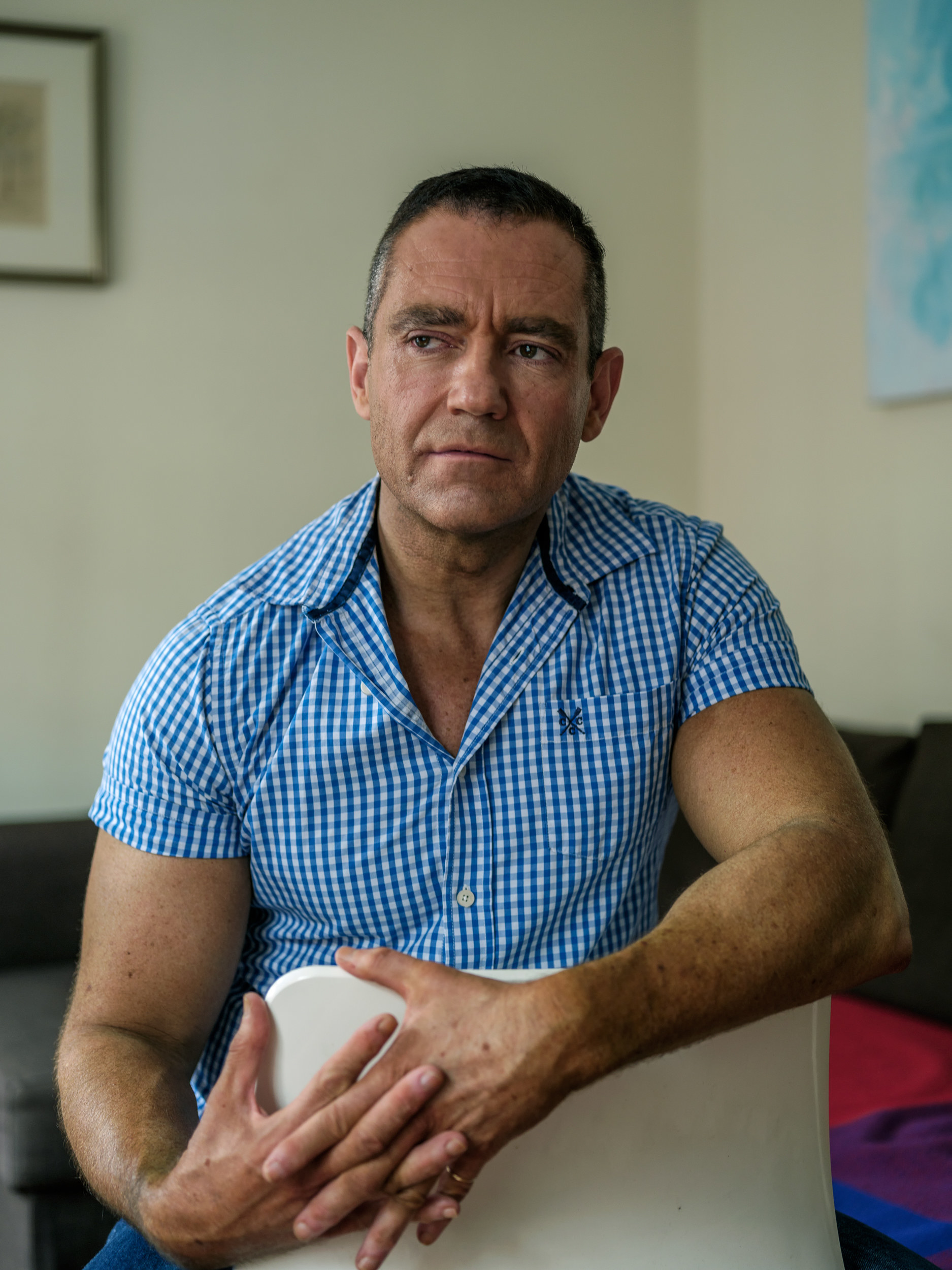
“Hello,” began Chris. “Not sure if you are the right person but I need help….I just don’t know what to do. I can’t stop taking G [GHB or GBL] day and night and I have been like this for 7 months. My life is a nightmare.”
Because withdrawal from GHB addiction can itself be life-threatening, as it can trigger seizures, Labayen de Inza advised Chris of the dangers and suggested he “get medical support to access a proper detox program. You need to contact your local drug and alcohol service.”
The messages to Labayen de Inza’s profile kept pouring in. He would leave the app on through the night and respond as soon as he woke up.
“Hello there, could you please help me? I’m trying to stop this nightmare of chemsex but I really can’t. I am going to lose everything if I don’t stop,” wrote Keith. He added that he was smoking meth daily, and “slamming [injecting] at weekends”. When Labayen de Inza suggested he could access a support service, Keith’s answer was revealing. “I can’t, I feel so paranoid that I can’t even think about going to a place like that.”
There were many like this, said Labayen de Inza — men who could not go to a support group or a clinic offering drug treatment services because the effects of the drugs stop them. “They either don’t know where to go or they’re paranoid,” he said. Such clinics are “based on drop-ins: You have to go there and be in a room waiting for an hour until someone sees you, and if you have someone you don’t want to see or you’re terrified…not everyone can do it.” Online information, therefore, is even more important, he said.
Others contacted Labayen de Inza after their first experience with such drugs. Oliver messaged to say he had taken G, meth, and ketamine the previous night with two men. “And one of them fuck me without condom, he tell me he’s gave [sic] the HIV.”
The young man said he did not know what to do or where to go. He had not slept in 24 hours. He sent a photograph (which we will not publish to preserve anonymity) of his lips: The bottom one had swollen to more than twice the normal size. “I don’t know why,” he wrote, alarmed by what he saw in the mirror. Labayen de Inza explains: When high on meth, people can bite their lip so much it balloons. He advised the young man not to panic, to try to relax, to read the booklet, and seek PEP, the medication that can be taken after being exposed to HIV, that can prevent it taking hold.
Some contacted the profile without asking anything, just to tell someone what they were going through, often it is the aftermath of sexual violence.
Neil messaged to say, “2 guys on G [GHB] they got me incredible high then slammed me with T.” To “slam with T” means to inject with meth. “Been concerned ever since, never done that, can’t recall anything, they claimed they used a clean needle but how can trust anyone…felt like I was violated without my consent.”
Many also contacted Labayen de Inza’s profile needing help for their loved ones.
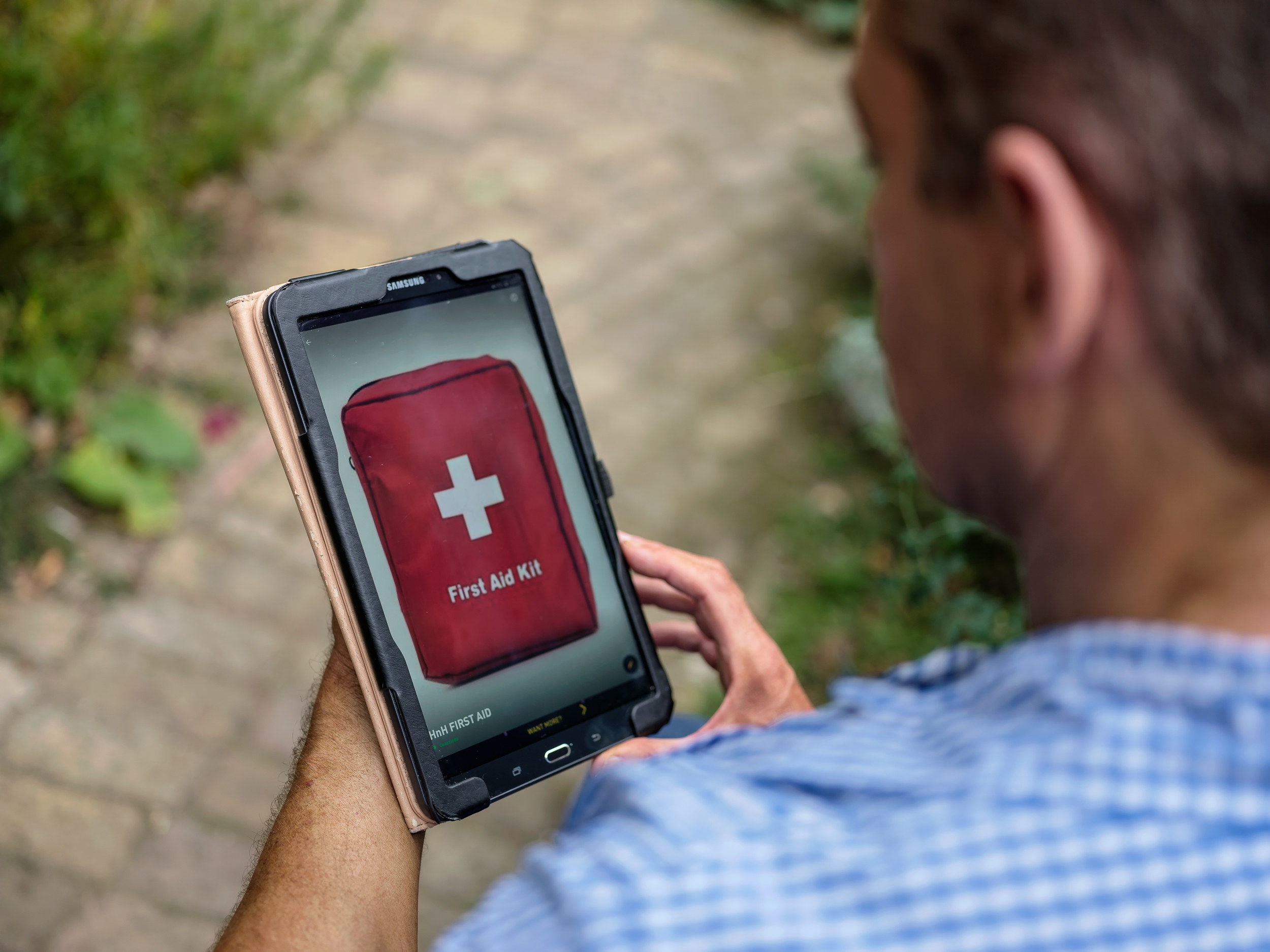
“My partner has lost control because of chems,” said Dominic. “He disappears for a few days, he doesn’t answer my calls, I have no idea if he is alive or not and when he comes back home he only sleeps and cries, promising me that never [happens] again. He is always paranoid, he has tried to kill himself twice, and I know he has nobody else but this is destroying me, he doesn’t want any professional help despite my efforts and I’m desperate.”
As these pleas for help continued to flood in, Grindr removed Labayen de Inza’s profile without warning on Feb. 12. He emailed, appealing the decision. “I said I have been working day and night to provide information, that I wasn’t breaking any rules or selling any service,” he said. Grindr sent a template response reserving the right to suspend users for any reason without warning. After trying again to appeal, there was, for Labayen de Inza, only one option.
He set up a new account for the profile on March 10, using a different email address. Again the messages poured in. This time, he began collating them into categories, so he could understand the overall picture.
Over the next five weeks, 587 men contacted the profile — until Grindr removed him once again.
“Three hundred were just interested in accessing the information [booklet],” he said. “115 had questions about harm reduction — how to prevent paranoia, how to manage comedowns, where to access needles, etc. 112 had questions about where to go to access support to deal with chemsex. And 108 had questions about G dependency.”
When Grindr removed his profile again, Labayen de Inza appealed again, using an online form the platform provides. The response frustrated him further: “As previously written, we have reviewed your profile and although we cannot release any details of the reports we received, we can confirm Grindr will not be removing the ban from the account due to the breached Community Guidelines mentioned on our previous response.”
The message did not say which guidelines Labayen de Inza had breached. It continued: “Grindr reserves the right to refuse or suspend access to any user, for any reason or no reason, and without any notice.”
What troubled Labayen de Inza was not only that he was being banned but also that he kept seeing dealers on the app. So he began taking screenshots of profiles that appeared to be selling drugs and started messaging them to document what was offered and for how much.
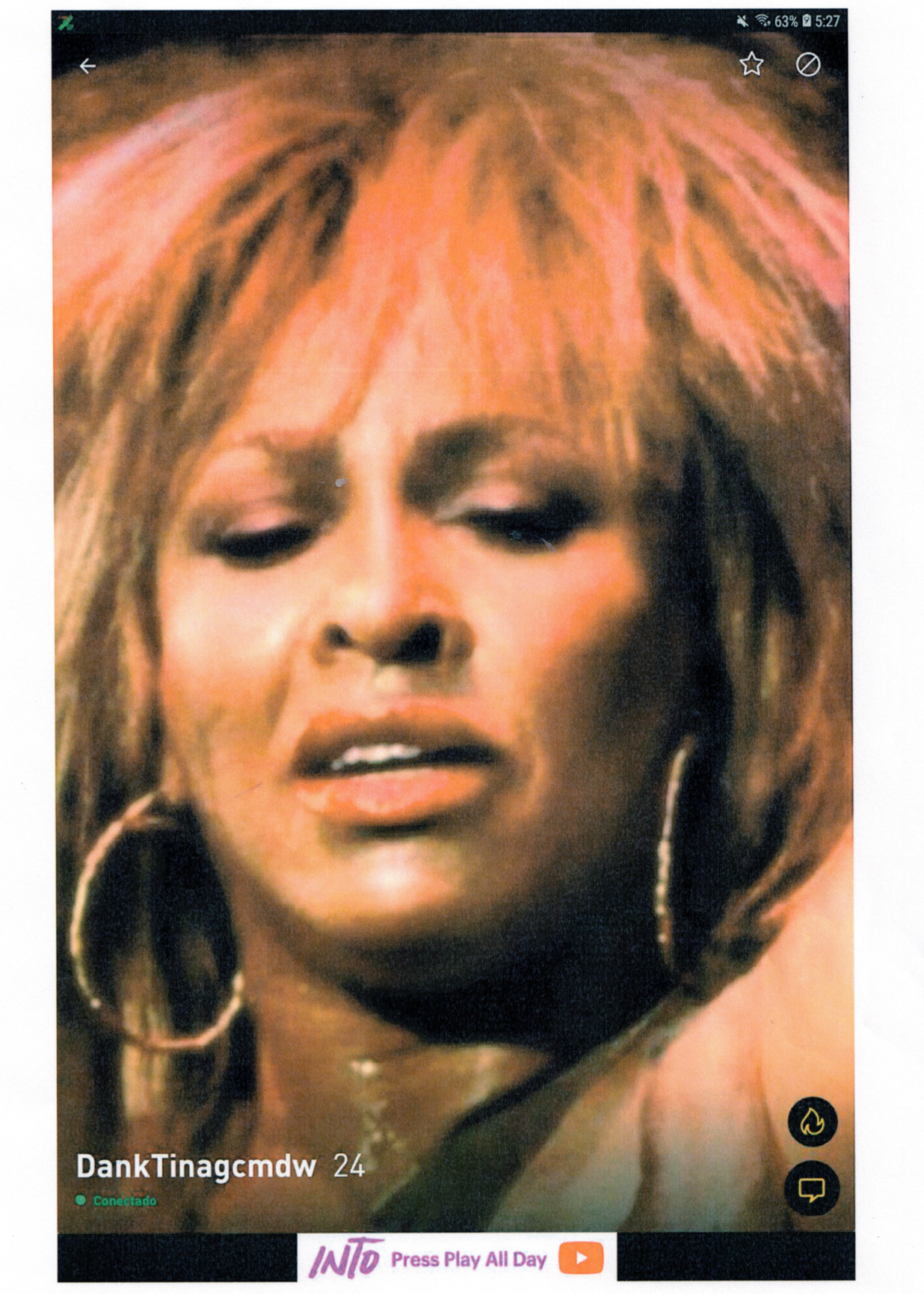
“You find them very easily,” he said. But his attempts were not to catch the dealers, rather to expose who was able to operate on the app when he wasn’t. “I thought I need to start putting pressure [on Grindr], to tell them that they are preventing activists from supporting the community.”
The profiles in question either used pictures, words, or both to advertise their products, often in coded terms. He supplied BuzzFeed News with printouts of 71 profiles.
There were pictures of: ice cubes (ice is slang for crystal meth); cars, bikes, wheels, or bags to suggest delivery; Tina Turner (Tina is the most commonly used slang for meth); pipes and blow torches (which can be used to heat the meth); droplets in liquid suggesting G being poured into a drink; and many others simply of attractive men.
Almost all used their profile name, emojis, or text to convey what was on offer. These included acronyms, slang and vaguely coded terms: “HnH”, “Sweets”, “Delivery”, “CHEMIST”. Or the more obvious: “TinaCokeWeeed”. Many use the acronym GMTV, known in Britain as a former daytime TV show but in this instance standing for GHB, Mephedrone, meth, and Viagra. Others used “G and T” — not gin and tonic, but GHB and meth.
Labayen de Inza was stunned that a dealer selling through Grindr could be at a customer’s door with meth in just a few minutes. “It’s not just that there are drug dealers but that they are very available,” he said. “It’s scary. They answer you immediately. They’re so keen to give you a discount.”
In one conversation seen by BuzzFeed News, Labayen de Inza messaged a profile at 2:53pm asking whether he could buy meth and GHB/GBL. Within two minutes, the response provided a full list of everything on offer, with prices. The “highest quality” meth at £50 for half a gram. “Top pharmaceutical grade” GBL at £30 for 30ml. A gram of MDMA for £40. The same price for ketamine. Viagra Blue, in 100mg dose pills, were £10 for three.
Labayen de Inza replied, “I am in Oxford Circus, how long u need to get here?”
“10 minutes,” came the response.
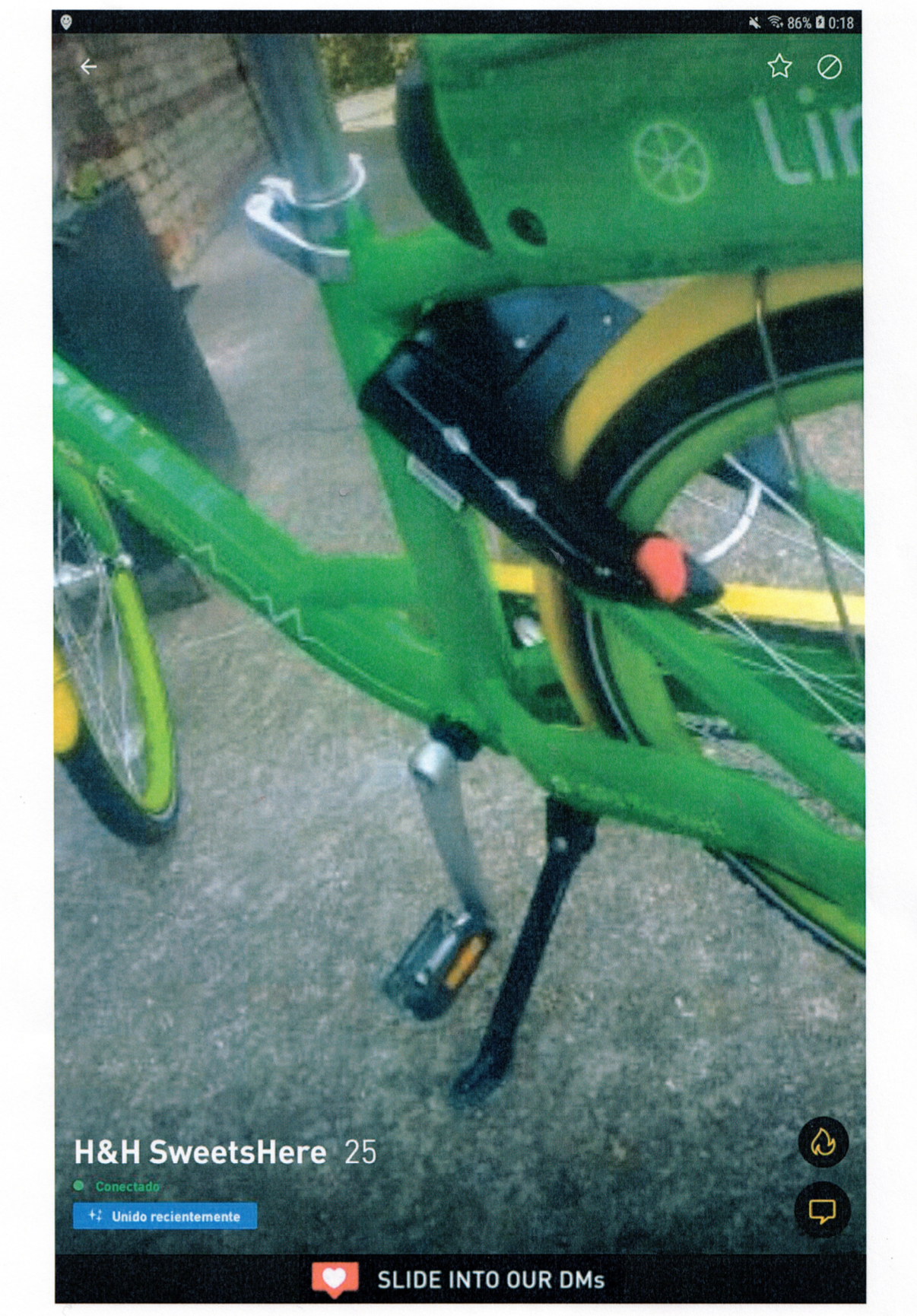
Every conversation seen by BuzzFeed News — in printouts provided by Labayen de Inza — followed a similar pattern: an immediate list of what was on offer, and for how much, followed by a promise of delivery in under an hour, some within a few minutes. Some offered discounts for greater quantities or to “waive the delivery price”. They would promise to deliver to further distances if Labayen de Inza covered their Uber fee “to and from”. The service was roughly the same all over London: door-to-door delivery. Day or night. The response through the app often came within five minutes. They would boast of “good quality” products: “proper gear”.
But this quality assurance was not the actual experience of some who messaged his profile after buying drugs through the app, said Labayen de Inza.
“One of the guys who contacted me… bought 2 or 3 grams of Tina and found that the dealer sold him salt,” he said. Another man told him that when he arrived to buy the drugs, “there were four guys who stole everything — his laptop, his car.” He believes the app represents the “perfect” opportunity “for lots of crimes to happen — crimes that aren’t going to be reported. Because how can you report it?”
Instead, he reported the drug dealing to Grindr, complete with screenshots, as part of his attempt to overturn the decision to ban his profile on four occasions. In one response, a company representative suggested that Labayen de Inza should simply “report users in violation of our Terms of Service”.
By late May, he was still banned and had made no progress with Grindr so he started emailing senior executives at the company informing them about the work that he had been conducting with the first-aid profile, about the repeated bans, and the evidence of drug dealing. He included more screenshots. He asked to speak with them to discuss the situation and how best to help Grindr users who need it. A manager in Grindr’s support department replied suggesting he connect Labayen de Inza with the Grindr Equality department, which looks after community interests.
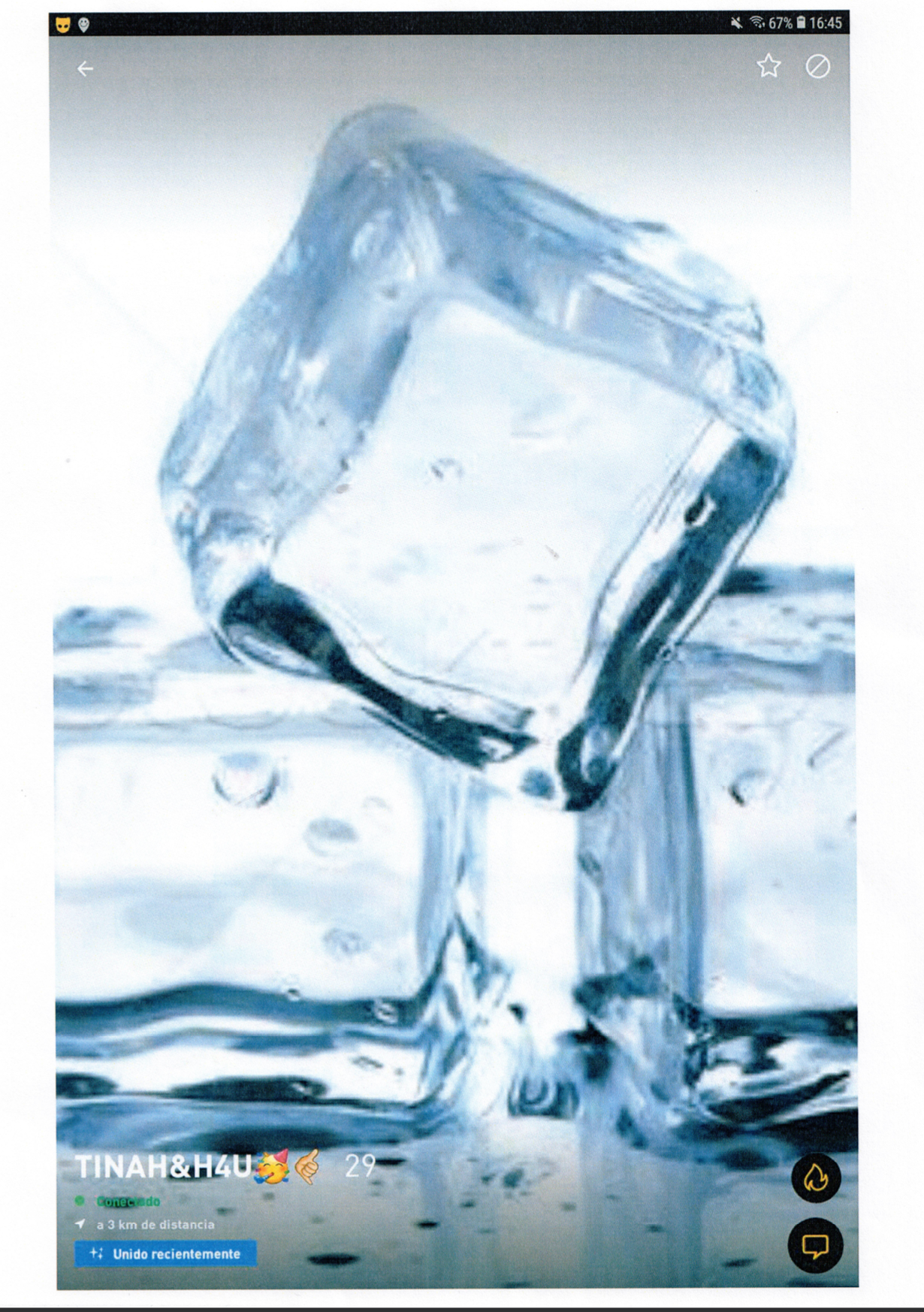
Via email, the Grindr executive said there had been a “breakdown in communication between our Customer Support team and the G4E [Grindr For Equality] team”, but he added, “I hear your frustration and exhaustion from doing all of this on your own in such an impacted community.”
They spoke on Google Hangout in early June. Labayen de Inza was heartened after their first conversation. “He said, I understand your concerns… I am aware of this problem… I want to support you with this, but I’m very limited… Please be patient.”
After they spoke, Labayen de Inza emailed the staff member telling him that Grindr “is making millions and millions” from gay people and therefore “has a responsibility for what happens in the app”.
He included a proposal of what could be offered to Grindr users to help those dealing with a chemsex drug problem. This included two main suggestions. First, a permanent profile on the grid of users on the app, which would, as he had previously been doing, offer harm reduction, relapse prevention and first-aid information, signposting to other services and interactive support — all of which would be provided by himself alongside an LGBT health charity. This idea would therefore not cost Grindr anything.
Or second, a similar service but run in-house at Grindr by Labayen de Inza and a team of staff and volunteers which would also enable him to help eradicate drug dealers from the app.
An email exchange began. On June 10, five months after he was first blocked, and after having to set up four new profiles, Labayen de Inza received a message from Grindr saying the company would no longer block him.
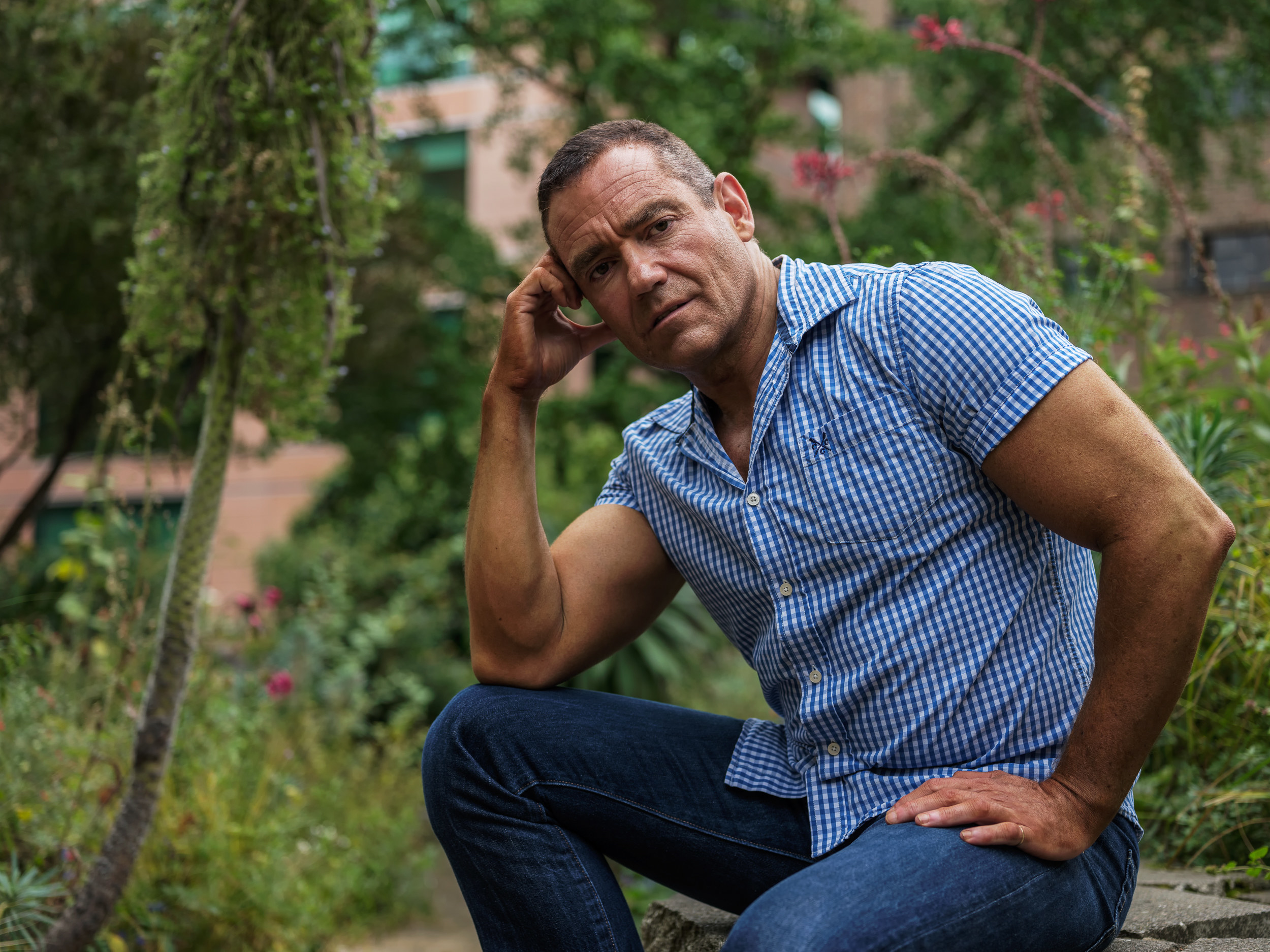
He also received an email from the Grindr executive who said he “hear[s] how critical the situation is” and gave a full response to Labayen de Inza’s proposals, describing the resources as “incredibly vital”.
But, he continued, “unfortunately we are not able to guarantee a permanent profile”.
He explained that the company’s customer support team was “bolstering our moderation practices around drug sales in light of what you have shared with us”; that the company offered “free ad space to organizations to message Grindr users about their services”; and that rather than providing users with the profile Labayen de Inza set up, he suggested offering “alerts, where we message both Free users and Xtra subscribers”.
This would have no effect, Labayen de Inza told BuzzFeed News, because people ignore messages like this, particularly if they appear like an advert.
“Every organisation in London that has tried to facilitate support using this way report no success,” he replied. Instead, there needed to be a constant presence on the app, he said. “People are looking for men, and that was why I created a profile to be located among the other profiles, because that is where people are looking.”
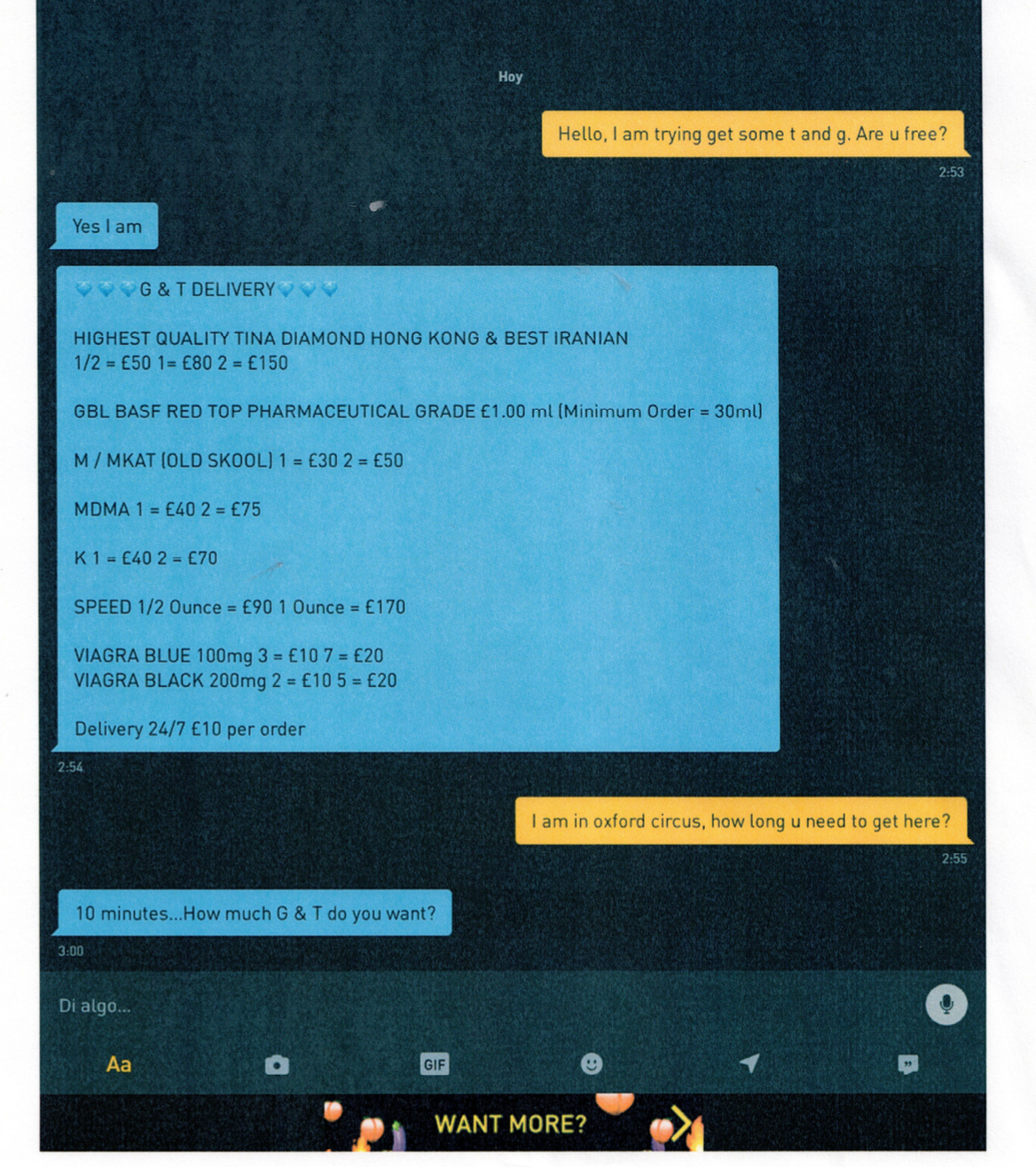
He added, however, that he was “glad to know that Grindr is exploring ways to control drug dealers [who] use your platform” and asked how they would do this, given that once a profile is blocked by Grindr “it takes two minutes to open a new one”.
The response ended with Labayen de Inza questioning Grindr’s rationale of putting chemsex information on its website, as it currently does, given that the site has just 15,000 visits per month, compared to its overall audience of millions on the app.
“I am really fed up with Grindr not taking this seriously,” he concluded. “I will carry on with this mission with or without Grindr.”
The email was sent on June 20. A week later, having not received a reply, he sent another, with more screenshots of more profiles seemingly selling more drugs and asking for a considered response. When a further week elapsed, he sent a mass email to dozens of Grindr executives. He included examples of profiles selling drugs, information about his toolkit profile and what he is suggesting needs to be done.
“For months and months I have been trying to find the way to be able to do this hard work in collaboration with Grindr… but unfortunately it seems the negotiations have reached an impasse,” he wrote, before summarising what he thinks the silence means. “It’s clear Grindr doesn’t want to get involved in supporting their most vulnerable users.”
He has yet to receive a response.
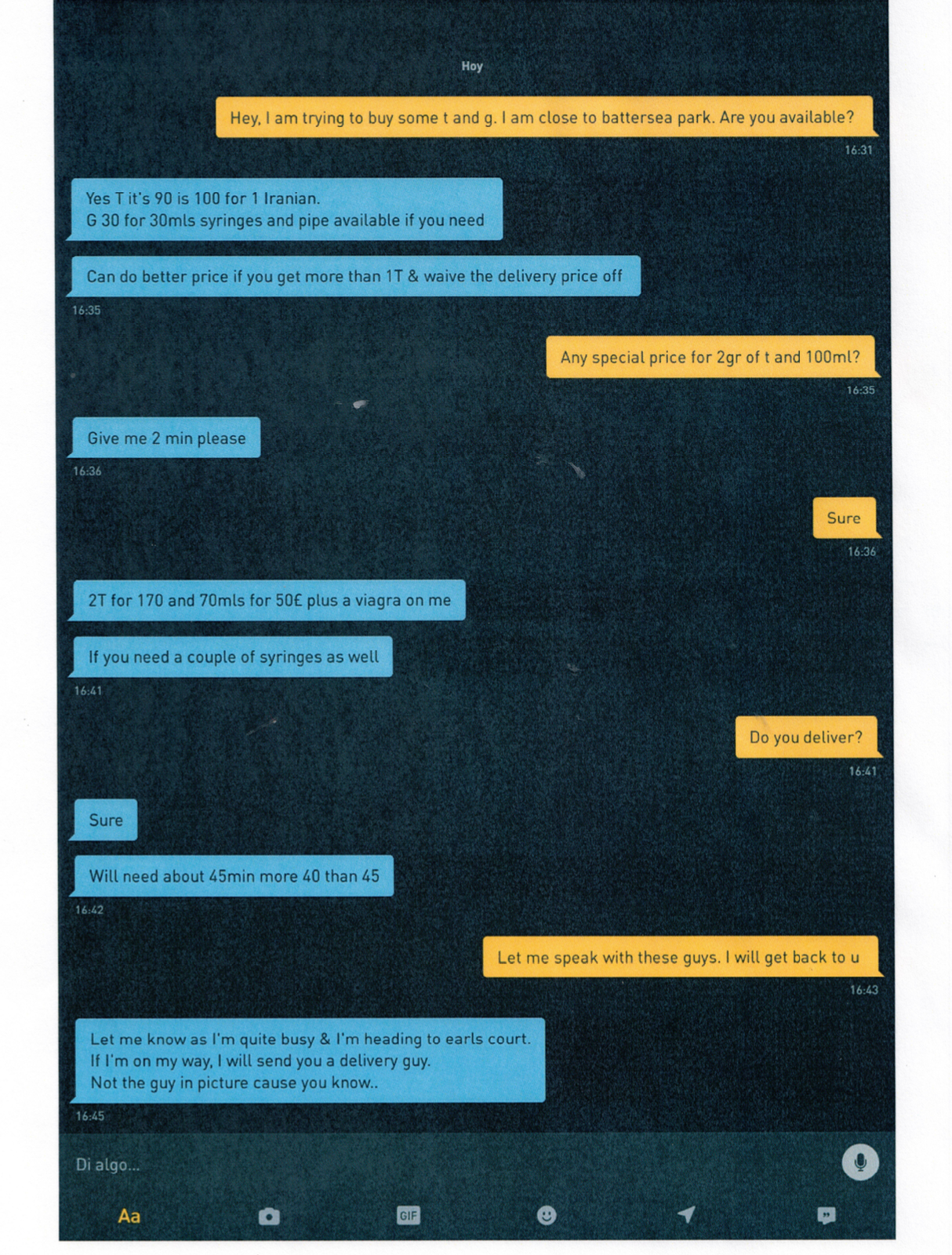
For the last decade, he has seen in his job the suffering resulting from chemsex drugs. “As a professional, I want to help,” he said. “We’re talking about lives.” But beyond the surface, the drug dealing, the effects of the drugs, the sexual violence, there is a common denominator fuelling it all. “In 99% of the interventions we deliver, loneliness comes up.”
That will not change overnight, he said. Instead, something else has to shift.
“My goal is for Grindr to wake up.”
When approached by BuzzFeed News, a Grindr spokesperson said the company is “deeply committed to creating a safe online environment for all of our users and take violations of our guidelines very seriously”, that they have “taken steps to address this issue” which included banning accounts and “providing our users with tools to report suspicious activity”.
The spokesperson also cited a recent partnership with the Terrence Higgins Trust in promoting the charity’s chemsex information campaign and added: “Regarding Mr. Labayen de Inza, we attempted on several occasions to work with him to amplify the work he was doing at the Dean Street sexual health clinic in ways that met our guidelines. Unfortunately, Mr. Labayen de Inza was not amenable to our offer to promote his written harm reduction materials, and promote his services at Dean Street so that his outreach work can happen at a population-level in London rather than on a one-to-one basis from his personal Grindr profile.”
